4 Feng Shui Tips for Optimizing Small Spaces
Transforming a small, confined room into an inspiring space is entirely possible. Whether it’s a studio apartment, a partial basement, or a cozy bedroom, implementing effective feng shui strategies can infuse positive vibes into your home. In this article, we’ll explore four actionable feng shui tips specifically tailored for interior design in small spaces, providing you with detailed guidance on optimizing the layout and flow, and energy of your compact living areas.
1. Divide and Define
To maximize the flow, well-being, and energy of your small space, it’s essential to create distinct functional sections, especially in all-in-one spaces like studio apartments. Consider incorporating the following tips for your surroundings:
- Utilize room dividers: Room dividers are excellent tools for creating defined areas within an open floor plan. They provide visual separation without compromising the spaciousness of the room. Look for dividers that match your style and functional needs, whether it’s a folding screen, bookshelf, or hanging curtains. By strategically placing room dividers, you can establish designated areas for different activities, such as sleeping, working, and entertaining.
- Furniture arrangement: In a small space, furniture placement plays a crucial role in good feng shui with defining zones. Position your furniture strategically to create natural partitions. For example, place the back of a small sofa against the foot of the bed, or position a media console between the footboard and couch in a living room space. This arrangement allows the TV to face both the entertainment area and the bedroom, effectively allocating space for different purposes. According to feng shui principles, assigning specific areas for different activities helps eliminate undesirable habits such as eating in bed or working on the floor.
- When it comes to bedroom layout, feng shui practitioners emphasize the importance of following specific guidelines to create a harmonious and balanced space. According to feng shui rules for the bedroom, the placement and arrangement of furniture play a crucial role in promoting better sleep and positive energy flow.
- A well-designed feng shui bedroom should have a solid headboard, preferably made of wood, positioned against a sturdy wall for stability and support. The bed placement should be easily approachable from both sides, allowing equal access and ensuring a sense of equality between partners. Nightstands on either side of the bed not only provide a convenient place for essential items but also symbolize balance and harmony. By adhering to these feng shui principles in your bedroom layout, you can create an environment that promotes relaxation, intimacy, improved sleep quality, and rejuvenation.
2. Organize and Declutter
Clutter can make any space feel cramped and suffocating. To open up your small space and create a sense of spaciousness, implement these organizational techniques:
- Smart storage solutions: In small spaces, maximizing storage is essential. Incorporate clever storage options to keep your essentials tidy and within easy reach. Consider utilizing under-the-bed storage bins or utilizing vertical space with wall-mounted shelves. Invest in multi-functional furniture pieces that offer hidden storage compartments, such as ottomans or coffee tables with built-in drawers. Use vertical storage for your bathroom door to help reduce clutter or the feeling of overwhelm in a small space.
- Closet organization: A well-organized closet can make a significant difference in a small space. Add built-ins or modular organizers to maximize the storage potential of your closet. Categorize your clothes, accessories, and belongings, keeping everything systematically arranged. This not only enhances the aesthetic appeal but also promotes cleanliness and structure, two important aspects of an effective and motivational space according to feng shui principles.
RELATED: 13 Clever Tricks to Make Your Small Kitchen Look Bigger
3. Strategize with Light and Color
Strategic use of light and color can significantly impact the perceived size of a small space. Follow these feng shui guidelines to create an illusion of spaciousness:
- Harness the power of mirrors: Mirrors are powerful tools in small space design as they reflect light and visually expand the square footage. Hang decorative mirrors strategically to amplify the sense of openness. Position mirrors opposite windows to maximize the natural light bouncing back and forth, creating a brighter and more expansive atmosphere.
- Window treatments: The right choice of window treatments can enhance the perceived size of your small space. Install curtain rods higher than the top of window frames to give the illusion of higher ceilings. Opt for light-colored or sheer curtains to allow natural light to filter through while maintaining privacy. Avoid heavy drapes that can weigh down the room visually.
- Light and bright colors: Color selection plays a vital role in creating an airy and open feel in a small space. Opt for light hues on walls, ceilings, and furniture to mimic and mirror natural light, especially in areas with limited windows. Light colors like whites, creams, pastels, and soft neutrals can make the space feel more expansive and inviting. On the other hand, dark colors can make the room feel claustrophobic and gloomy, promoting a sense of seclusion.
RELATED: 13 Tried & Tested Ways to Transform Your Apartment on a Budget!
4. Personalize and Inspire
Even in limited square footage, infusing your style and inspiration is crucial. Incorporate these ideas to personalize your small space while adhering to feng shui tips and principles:
- Display personal mementos: Don’t let the size of your space discourage you from incorporating personal flair. Display family photos, artwork, and sentimental objects that bring you joy and inspire positive energy. Dedicate a small gallery wall or use floating shelves to showcase these special items.
- Inspiring colors and ornaments: Use colors that resonate with you and evoke positive emotions. Incorporate inspiring hues through accent pieces, throw pillows, rugs, or artwork. Consider adding natural elements like plants or crystals to introduce a sense of tranquility and connection with nature.
- Create an inspiring workspace: If your small space includes a dedicated workspace, make it both functional and inspiring. Optimize your desk space by keeping it clutter-free and organized. When not in use, transform it into a display area for decorative items that uplift your mood and stimulate creativity. Consider applying removable decals with encouraging phrases on blank walls to create an uplifting and motivational atmosphere.
With these feng shui tips, small rooms no longer need to be stress-inducing living areas.
By carefully dividing and defining spaces, organizing and decluttering, strategizing with light and color, and personalizing the environment, you can optimize the energy and functionality of your small space. Remember to maintain a harmonious and inviting atmosphere while infusing your personal style and inspiration.
Don’t let small rooms become stress-inducing or negative energy living areas. Check out homes on Zillow for more examples of how to create harmony with inspiring designs in small spaces. If you liked this article, you will also love my 6 Tips on Decorating Small Spaces.
RELATED: 5 Affordable Solutions For A Small Storage Apartment Entryway
If you enjoyed these feng shui tips for small spaces, you might also enjoy:


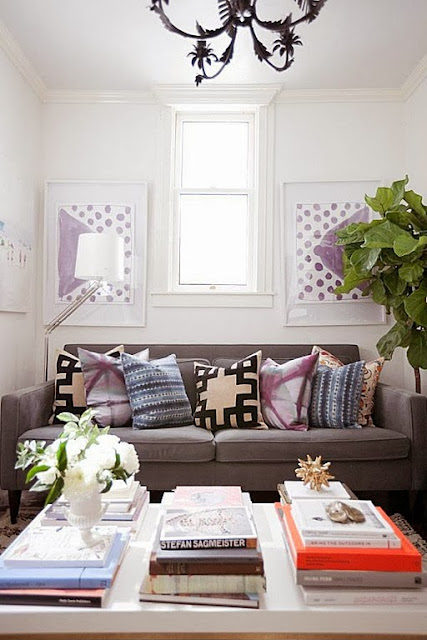
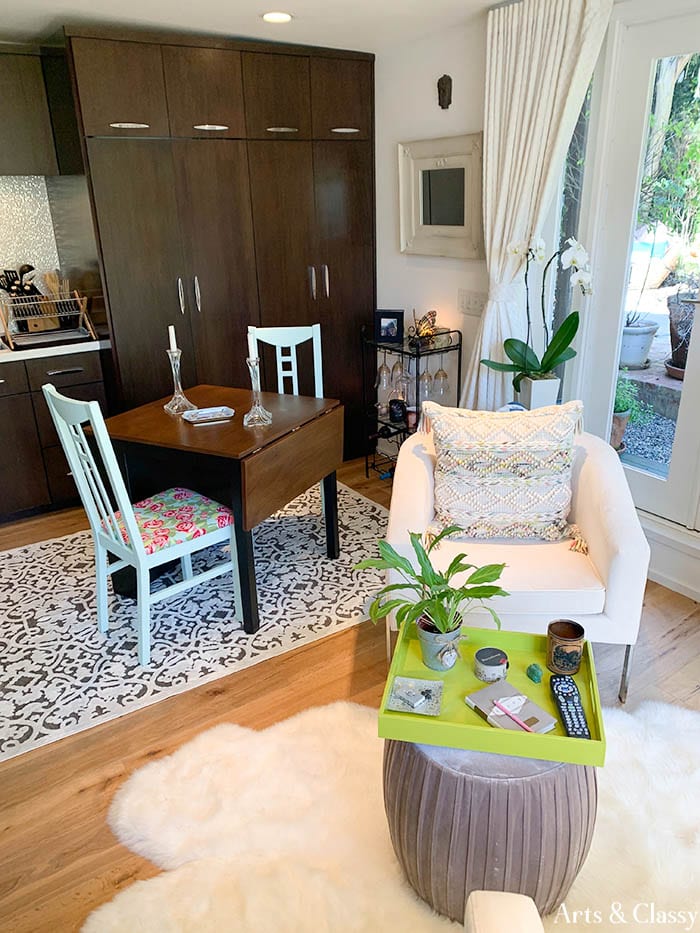
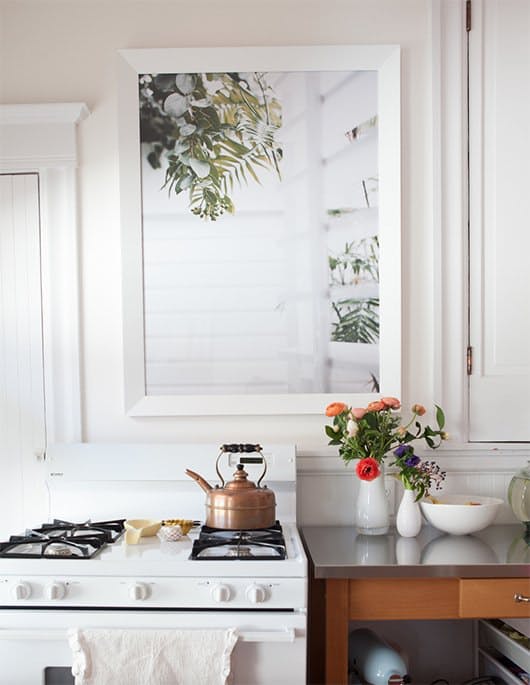
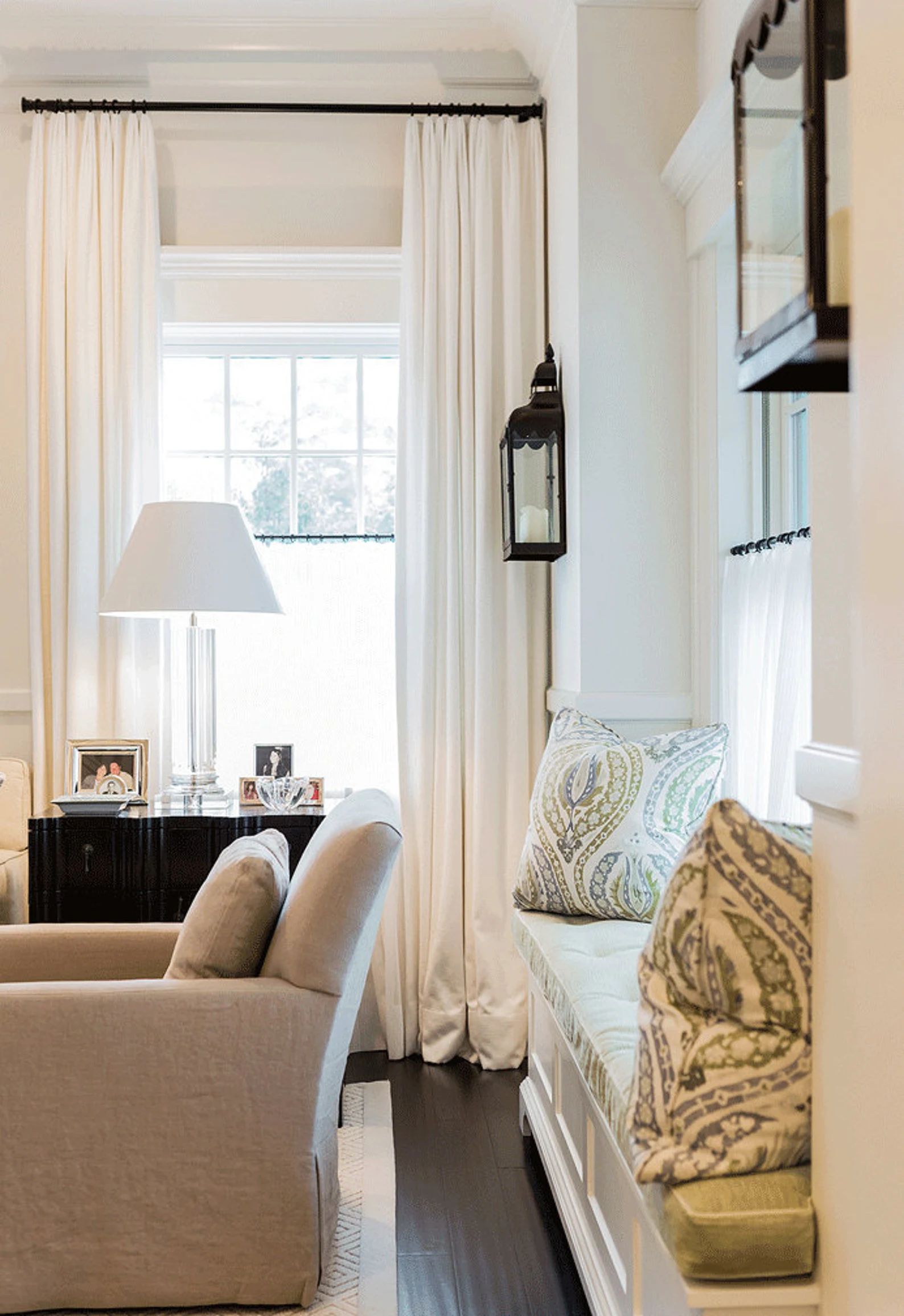
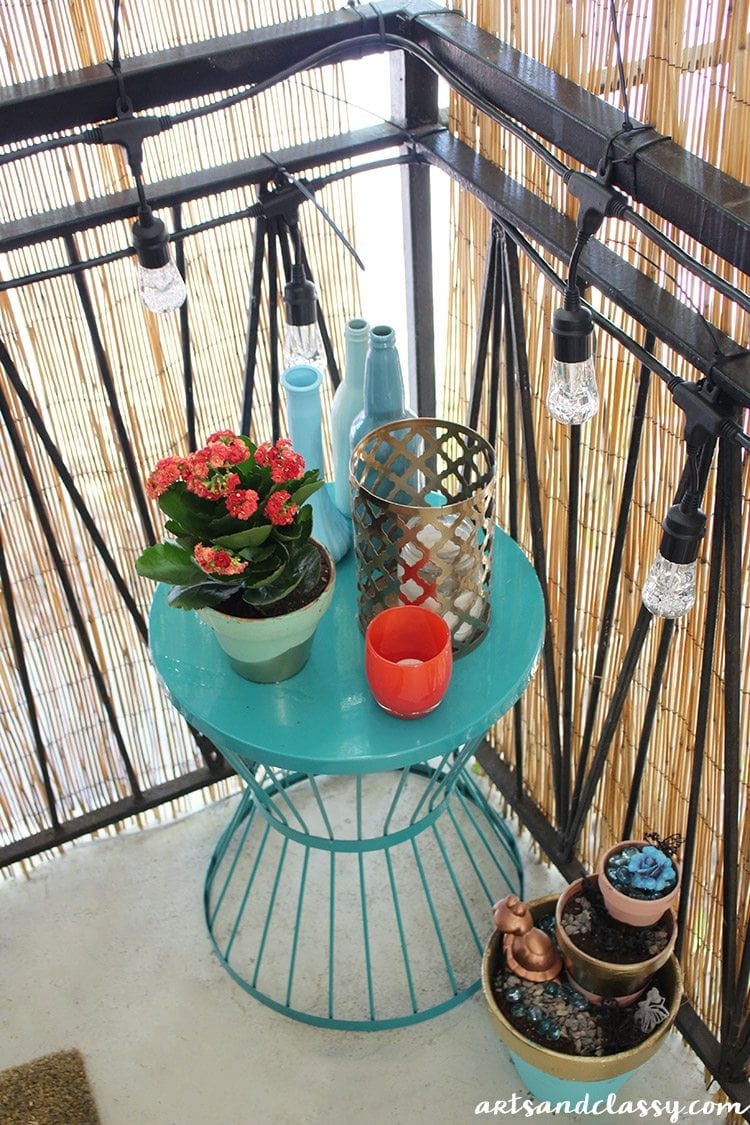
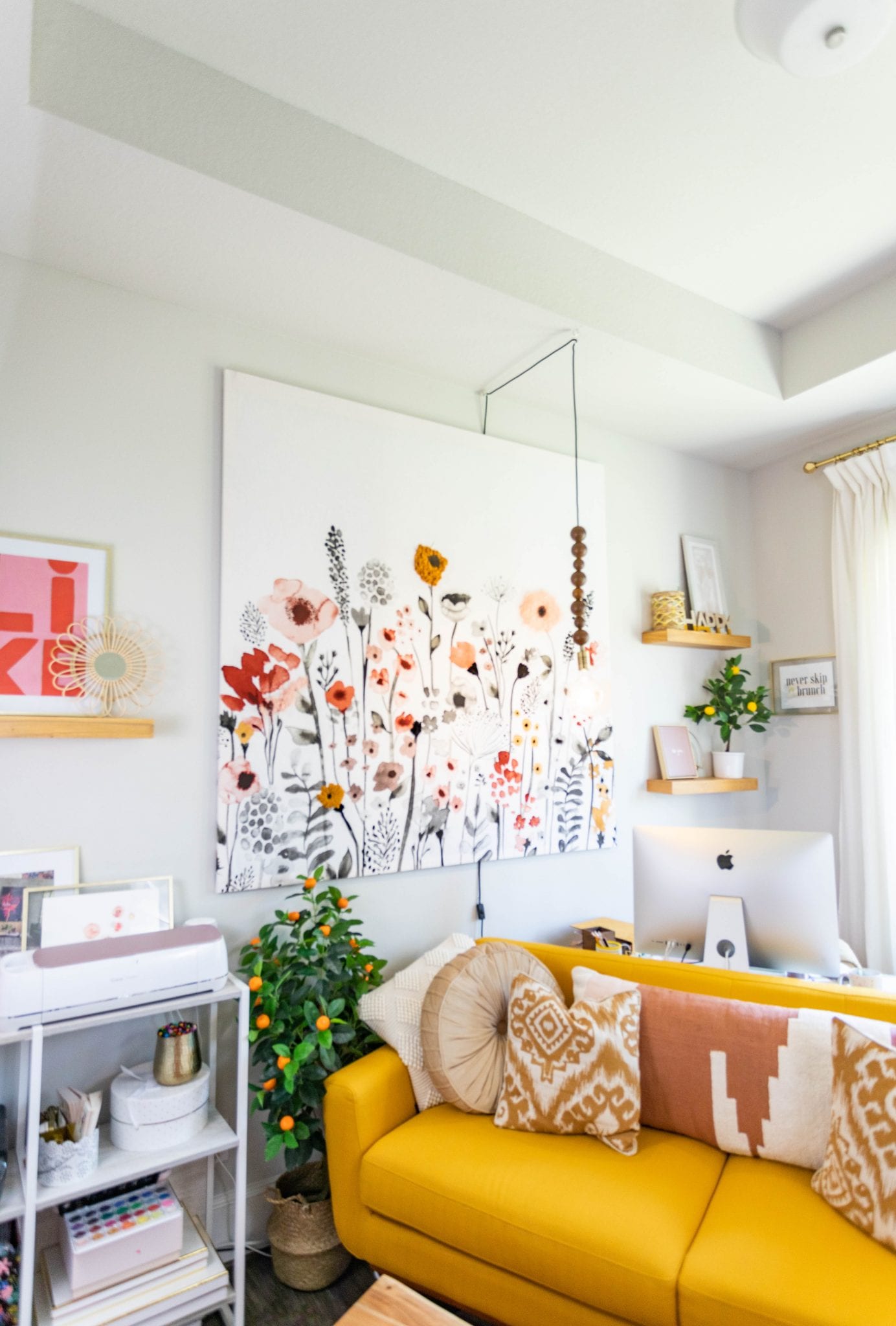

Extremely disappointed. I love reading about feng shui…
I have lightly studied it over a few years… and from my small amount of experience with it. Your first two are big feng shui no-no’s
absolutely do not have a tv in the bedroom area. period. and do not store things under your bed…. Feng shui means wind and water… under no circumstance are we to have things under the bed… even in a small space. its important for the energy to be able to move smoothly in our place of rest. Since this was a guest post, maybe you don’t know much about feng shui. I am definitely no master but these things stood out to me, and made the rest of the suggestions completely without integrity for this person is no feng shui expert. I would LOVE to read this article written by someone who is a master of feng shui and familiar with working in smaller spaces. This topic is one I would love to read- but would love more meat- more grit and more credentials. Thanks, and I hope this kind of feedback is helpful.
Aubrey,
This was a guest article my Zillow. I did not write it, but I still feel like there are some solid tips in this post. You are free to express you opinion, but I respectfully disagree. 🙂